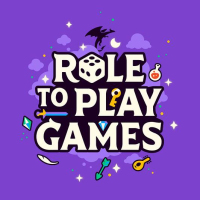A young man’s dream of inheriting a fortune hinges on one condition: excelling at an elite academy. But as rivals plot to derail his success, he uncovers a hidden power—unpredictable mind control—that complicates every move. Will he crush opponents, manipulate them, or forge alliances? In this strategic, character-driven game, every choice risks backfiring, making success harder… and far more thrilling.
The Academy Gauntlet: Success at Any Cost
1. The Fortune’s Fine Print: Inheriting the fortune isn’t just about grades—it’s a high-wire act. Top marks in advanced courses, public speaking, and even social etiquette are mandatory. Miss a single deadline or score below a “B,” and the inheritance vanishes, leaving our protagonist with nothing but debt and humiliation.
2. Rivals with Teeth: Wealthy, entitled classmates, a cunning dean with a grudge, and even a mysterious transfer student—all have reasons to sabotage him. Some spread rumors to damage his reputation; others hack his notes or sabotage exams. Their tactics are personal, turning the academy into a minefield of betrayal.
3. Pressure Beyond Grades: The stress of the mission takes a toll. Sleepless nights, anxiety over failing, and the fear of exposure (what if word of his mind control leaks?) add layers to his struggle. These emotional beats make his journey relatable, even as he bends reality to his will.
Mind Control: A Double-Edged Sword
1. Unpredictable Results: His power lets him influence thoughts, but not always as planned. A target might resist, their subconscious rebelling against the command. Others, pressured by external factors (family expectations, hidden fears), react in ways he never anticipated—turning allies into enemies or vice versa.
2. Mental and Physical Costs: Overusing the ability drains him. Headaches, memory lapses, or even temporary loss of control (e.g., accidentally influencing a teacher during an exam) create tense trade-offs. Players must balance power use with self-preservation, adding strategic depth.
3. Ethical Dilemmas: Even when successful, manipulation erodes trust. A classmate he “guides” to befriend him may later resent the violation of their free will. These moral gray areas force players to question: Is it worth sacrificing integrity for the fortune?
Relationships That Redefine the Game
1. Rivals with Hidden Depths: Not all adversaries are purely evil. The transfer student, for example, might be acting under duress (e.g., blackmailed by the dean). Uncovering these backstories turns enemies into potential allies—or tragic figures—deepening the narrative.
2. Allies of Convenience: A few allies (a kind librarian, a tech-savvy roommate) offer support, but their loyalty is fragile. They demand favors in return: leaking test answers, sabotaging a rival’s project, or even using the mind-control power to protect them. Choosing to help (or exploit) them reshapes the story’s trajectory.
3. The Wild Cards: Unexpected characters—a janitor with a grudge, a visiting alumni with ties to the fortune—appear sporadically, each with their own agendas. These wild cards keep players on their toes, ensuring no two playthroughs unfold the same way.

























